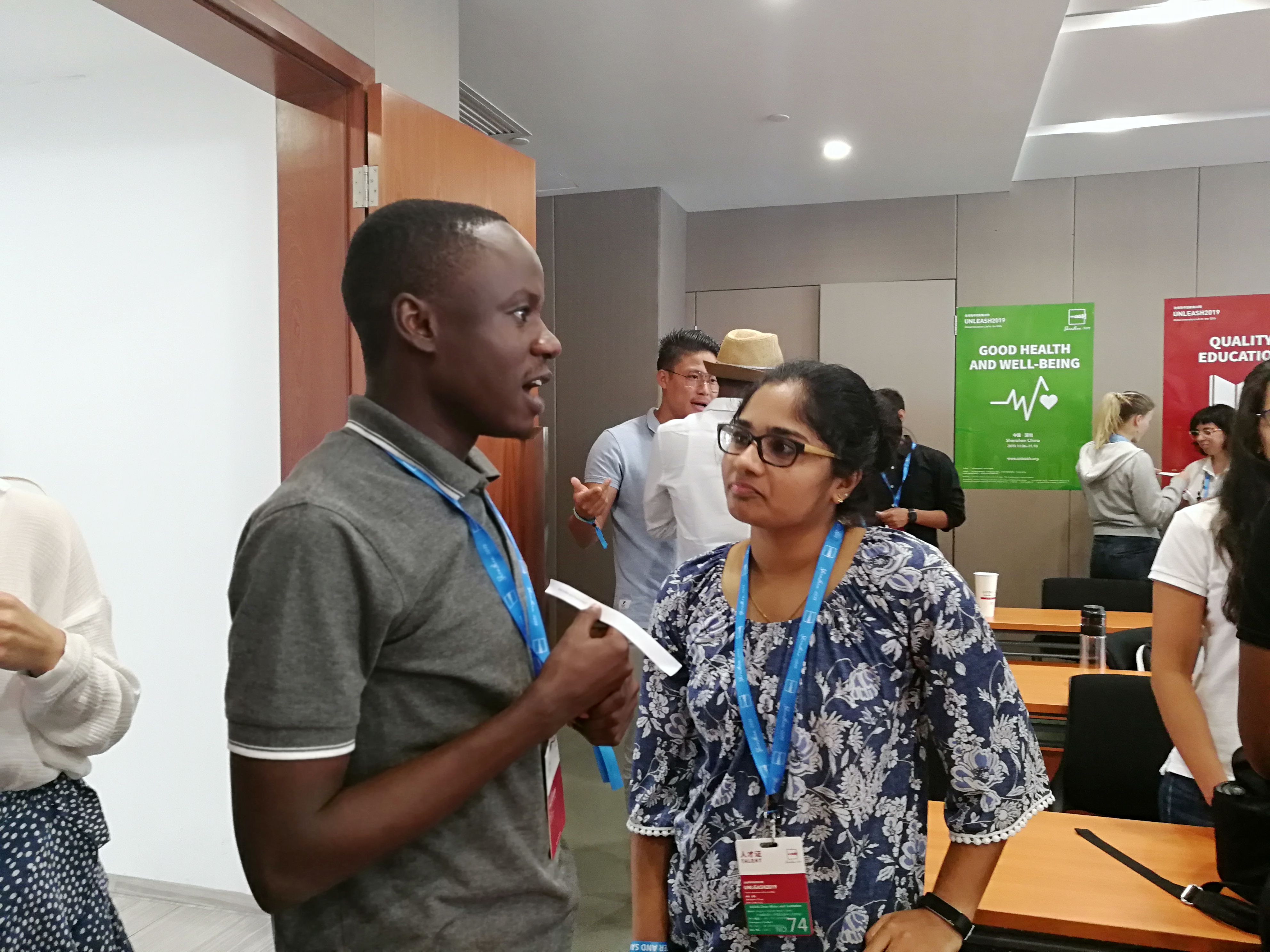Youths spark ideas for boosting access to clean water
Writer: Zhang Yu | Editor: Holly Wang | From: Shenzhen Daily | Updated: 2019-11-08

Talents engage in heated discussion at T-Park SZ-HK Film Creative Park in Futian District on Thursday. Li Pufang
About 150 talents from around the world gathered at T-Park SZ-HK Film Creative Park in Futian District yesterday and brainstormed ways to achieve universal access to clean water and sanitation, one of the 17 global goals that make up the 2030 Agenda for Sustainable Development.
The park is one of the nine venues for this year’s UNLEASH Innovation Lab being held in Shenzhen, which offers eight days full of inspiration, discussion and co-creation of new innovative solutions for the U.N. Sustainable Development Goals (SDGs).
“I’m here to see how different expertise and solutions can work together. What really inspires me is working on complex problems and looking at them from a new angle,” said Johan Juul Jensen, founder and chief commercial officer of SolarSack, which he says is the world’s cheapest water purification system.
SolarSack is a special bag that can hold four liters of water. Within four hours in the sun, using the heat from the sun as well as UVA and UVB rays, the water is pasteurized, cleaned of pathogenic bacteria and ready to drink.
Moreover, at a price of about one dollar a piece, including distribution, SolarSack costs about the same amount as a bucket of coal.
According to Jensen, the water purification device is developed based on studies and prototyping in East Africa, where the most widespread method of purifying water is boiling. However, boiling requires coal or wood, both of which are expensive and harmful to public health and the environment.
Pratik Gauri, a Global Shaper recognized by the World Economic Forum and an ambassador at One Young World, shared with the Shenzhen Daily that his concern about the topic is motivated by what he has seen in India, where water scarcity, unsafe drinking water and decades-old sanitation have been grave problems, especially in rural areas.
“I and talents from different countries have an idea for using micro-donations to make sure that every individual is participating in every campaign we are running, so that we achieve the SDGs,” Gauri said.